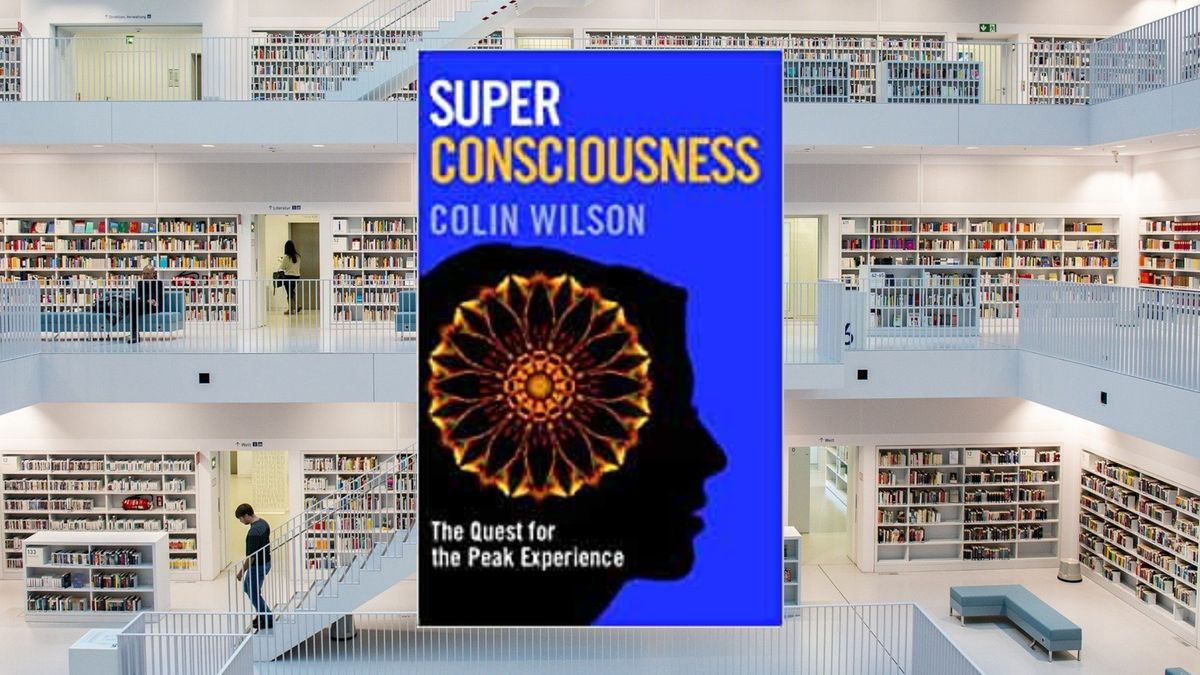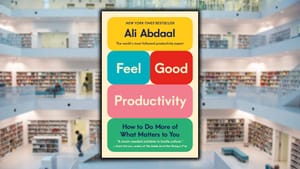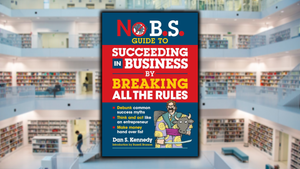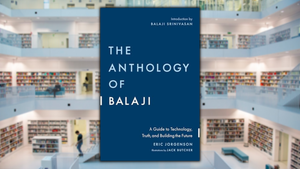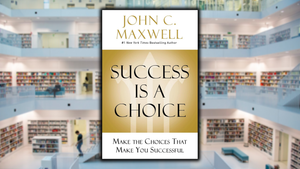
This Book is For:
*Anyone who's tired of hearing people go on and on about how horrible and awful the world is, and who want to learn about all the reasons there are to embrace a philosophy of optimism and personal power instead.
*People who are interested in a phenomenon called the "peak experience," where our normal way of living and seeing is violently disrupted, and we come to see that reality itself is more wonderful and fantastic than we ever previously believed.
*Everyone who is interested in both the darkest depths and most dizzying heights of human consciousness, and who wants to learn about the various attempts of great individuals throughout history to break through to a more profound experience of reality.
*All human beings who wish to feel more vividly alive and to experience intensely what it means to be active, conscious, and powerful, existing in a universe containing an infinite amount of wonder and possibility.
Summary:
“What I learned from mystics and poets was that ‘everyday consciousness’ is only one of many possible states, and that we become trapped in it by assuming that it is the only kind.”
-Colin Wilson, Super Consciousness
When you change the way you look at things, the things you look at change.
Individuals tend to have much greater control over their internal and external circumstances than they believe and, within reason, you can change your moment-by-moment perception of reality by working to strengthen your consciousness.
The way Colin Wilson conceptualizes it in this book is that life is like a vast museum just full of beautiful artwork that we could perceive, but it's as if we're trying to see in the dark.
We don't bring our full mental faculties to the task, and although the brilliant artwork is still there in the dark, we have to “turn on the lights,” so to speak, to be able to see how beautiful life really is or can be.
Every once in a while, however, we are reminded of the literally stunning beauty and wonder of life, and it shakes us out of our accustomed habits of seeing the world as a rather dull, dreary, miserable place.
It is within our power to shake ourselves out of this suboptimal, habitual way of seeing, and the investigation of how certain people have done that throughout history is Colin Wilson's project here in this book.
Human history is full of examples of individuals who have experienced states of powerfully heightened awareness. Known as peak experiences (PEs), these periods of extreme mental, emotional, and creative invigoration have often resulted in great achievements and the discovery of enormously important insights into the nature of life and reality.
In the book, he draws examples from the lives of major literary figures (William James, H.G. Wells, George Bernard Shaw, and others are among his favorites) to show that certain, powerful moments of our lives can serve as persuasive counterexamples against any negative, pessimistic feelings we might have that life is this dreary, painful ordeal that we just have to “get through.”
His philosophy, what he calls New Existentialism, however, is fundamentally optimistic, in that a completely new, satisfying, and fulfilling way of moving through the world is available to each one of us, if only we were to set about trying to make it real.
By controlling your mind - by developing your mind - you can change your life. If you don’t like your life, you can change it.
But this potential power to change your conscious reality isn't just going to come to you. It's something that needs to be developed within the human mind, and it's not a fast, easy process. It's something that comes with effort, purposeful striving, and a sincere commitment to seeing the true value of life shining through the apparent gloom - under any circumstances.
As we'll come to discover in this breakdown, sometimes the only way to overcome this complacency is to face down some sort of crisis - to come up against something difficult, an obstacle that refuses to let us move forward without a fight.
In a word, we need to stretch ourselves and our normal ways of living and seeing if we're going to break through this grayness and burst into an entirely new consciousness. It's available to all of us, but as Friedrich Nietzsche once said:
“Whence come the highest mountains? I once asked. Then I learned that they came out of the sea. The evidence is written in their rocks and in the walls of their peaks. It is out of the deepest depth that the highest must come to its height.”
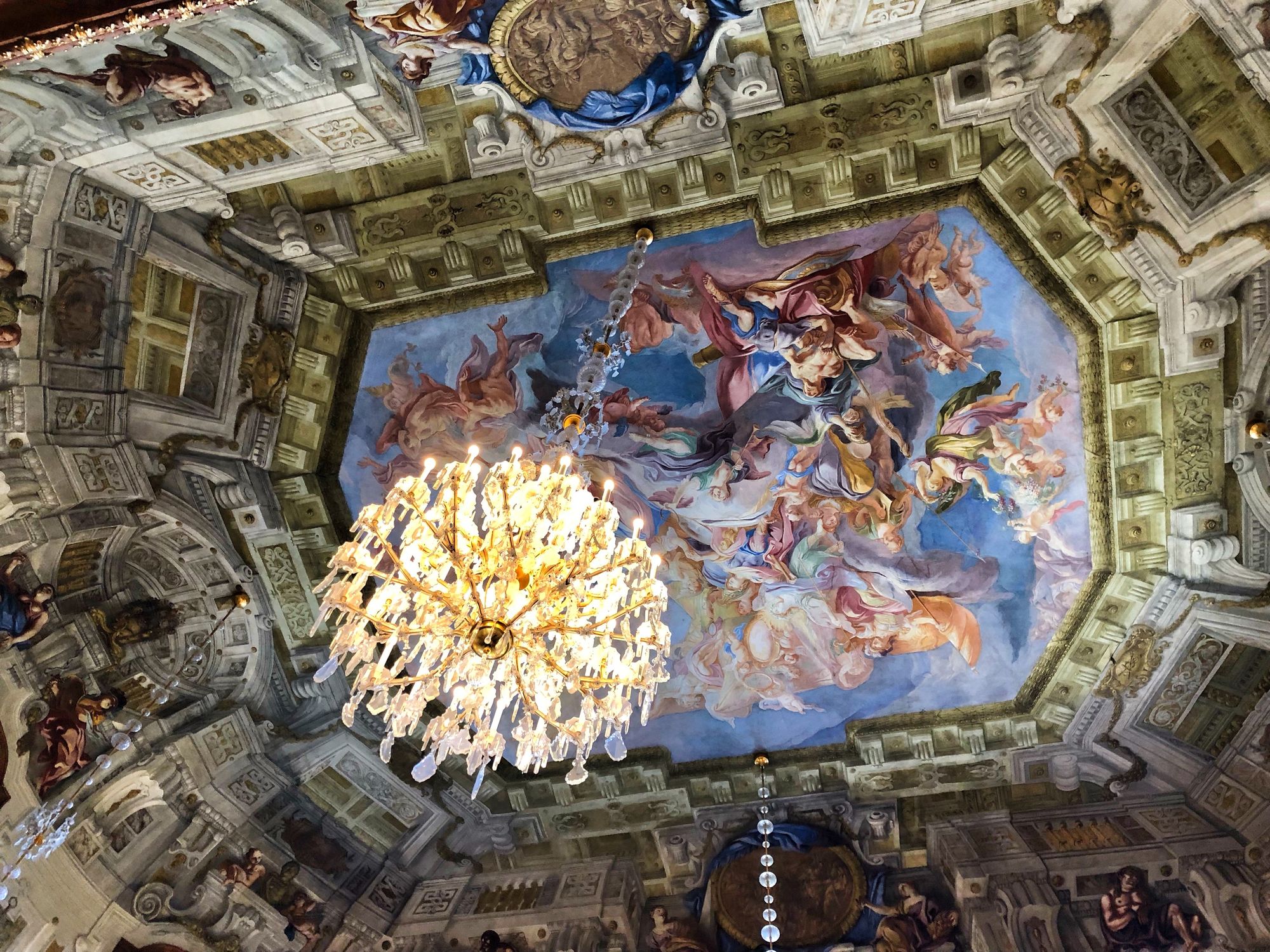
Key Ideas:
#1: Develop Your "Crisis Vision"
“If a crisis looms before us, then suddenly disappears, we are hurled into a state of happiness and optimism.”
The New Existentialists (a branch of philosophy championed by Colin Wilson) believe in human agency, and the power of the individual to shift their own mental states (to a reasonable degree) in a positive direction by a direct effort of will.
One of Wilson's biggest personal discoveries along these lines was that most people are living beneath their full capacity. His life's work, in fact, was to help show people that they were like a great big jet airplane that was flying on only one engine.
That is to say, people are so much more powerful than they commonly believe.
One of the best ways to do this - to shock the human consciousness into full aliveness - is to confront a crisis of some kind, to step up and into a situation which demands that people fire up all their engines and fully engage with life.
In Super Consciousness and elsewhere, he tells stories of other well-known individuals who have done or experienced the same. For example, there was the novelist Graham Greene who, as a teenager, would reach such an extreme state of boredom and apathy that he would go out into a field and play Russian Roulette against himself.
When he would pull the trigger and find that he hadn't been killed by his own bullet, he would experience an intense rush of joy and pleasure in living that restored to him his sense that life was wonderful.
Similarly, the Russian novelist Fyodor Dostoyevsky was once arrested as part of a criminal plot against the Czar. Moments away from being shot by the firing squad, he was told that his sentence had been commuted and that his life would be spared. He was being to Siberia for hard manual labor instead.
Upon hearing the news, Dostoyevsky felt much the same as Graham Greene did, in that he was filled with this intense, visceral love and appreciation for life, the strength of which he had never experienced before.
Obviously, these are extreme cases. You and I don't need to go to the same lengths to experience similar feelings and to remind ourselves that existence is spectacular and that our whole lives stretch out in front of us, waiting to be lived.
We can conjure these feelings in ourselves, but we need to be intentional about it, and we need to be alive, active, and engaged with life. We need to develop our crisis vision.
Almost any problem of sufficient severity or fascination can serve to help you "feel the life in you more intensely," to use the phrase of the playwright George Bernard Shaw. Life itself is a series of problems to engage with, puzzles to solve, and epic challenges to overcome. As Mark Manson wrote in his mega-bestseller, The Subtle Art of Not Giving a F*ck, we'll never get to the point when we don't have any problems anymore. Except maybe when we're dead. Maybe!
Instead, life is a constant, challenging progression from the boring, stupid problems we have now, to more interesting, useful, and meaningful challenges we can rise to in the future.
Problems will come to you no matter what. It's just a part of being alive. But to a certain extent, we get to choose our own problems, and we get to decide what kind of meaning they have for us. We can either be passive - waiting for "better" problems to come to us - or we can go out in search of them ourselves.
Now, obviously, there are still massive existential challenges being faced by human beings all over the world that are just...horrible to contemplate.
No one is suggesting that the person working 3 part-time jobs to feed their family needs to just "look on the bright side," or that mass starvation or water shortages are a "lesser" problem that people can just "graduate from" if they want to live more meaningful lives. No one is saying that at all.
However, if you are somewhat better off, and you do know where your next meal is coming from, there's a roof over your head, you have people who love you, etc., then the next step is to get better problems. Come to think of it, throwing yourself into the struggle to solve the problems of hunger, homelessness, and war could give you this "crisis vision." Life is service, and one of the best ways to feel more alive is to help others to feel more alive as well.
Regardless of what form your "crisis" takes, the important insight here is that the world is fundamentally good. Existence is heaven, and we're living in that heaven right now, if only we could summon the internal energy and force of will to capture it and to make it real.
As we'll explore in the next Key Idea, the beauty of the world is always there; we just have to see past all the negativity and pessimism and fire up all our engines in order to see it more often. As Colin Wilson relates in the book:
“Dostoevsky never forgot that ‘crisis vision’ – the recognition that the world is an incredibly beautiful place, and that we are prevented from seeing this mainly by laziness, negativity, and force of habit.”
#2: Turn on All the Lights
“If you go into an art gallery that is badly lit, you can’t see the pictures properly. Yet you don’t declare that they are therefore bad pictures. This is what the pessimistic philosopher is asserting about life.”
In the last Key Idea, I mentioned how Colin Wilson believed that most people were living beneath their full capacity for aliveness, like a great big jet airplane flying on only one engine.
Here, we have a different way to look at life itself: like an incredibly gorgeous museum that we're trying to move through in the dark, i.e. through our habitually pessimistic view of life.
Some people are naturally more optimistic than others, of course, but Colin's claim is that there is an entire dimension of beauty and wonder and...well, straight-up gorgeousness...that we need to train ourselves to be able to see.
If we were fully lit up - if we engaged the full capacity of our perceptive faculties - we would see the fundamental exquisiteness of existence, and we wouldn't have so many depressing philosophers running around, trying to tell us that "life is suffering," or that "life is divided between the horrible and the miserable," and all the rest of that nonsense.
Yes, truly awful things happen all the time, but that doesn't characterize the very nature of reality itself. Life is far more beautiful than we normally see it.
Wilson's main insight was that the true beauty of life may usually be underneath our conscious awareness, but that we always have the ability to call it back to mind and to realize, immediately and intensely, that life is worth living and that we can be happy here.
We always have the power to "turn on the lights" and see reality clearly. It calls to mind the amazing quote from Naval Ravikant, where he asks:
"What if this were the paradise we were promised, but we're just squandering it?"
If we accept the possibility that sometimes we need to (excuse the pun) lighten up a bit in order to see the beauty of reality clearly, it becomes necessary to realize that we have at least some limited control over how we perceive reality and that we don't have to remain burdened by all these pessimistic thoughts about how living is such a struggle.
In the closing quote here, where Colin Wilson is talking about Graham Greene's novel, The Lawless Roads, he says something fascinating, and something that is well worth keeping in mind:
“But the really interesting phrase is: ‘It was as if a light had been turned on.’ If you go into a dark room and turn on the light, you see what was there all the time. In the same way, in The Lawless Roads, Greene admits that some situation of crisis ‘induced in me something I had not even suspected – a love of life.’”
#3: We Are 51% Robots
“In short, human beings do possess freedom, but most of the time they waste it by living ‘robotically.’ Yet we only have to make an effort to raise our vitality by one degree, so we are 49 percent robot and 51 percent ‘real you,’ to recognize that freedom is a reality.”
Philosophers aren't usually all that great at math (myself included!), so maybe don't take the "49" and "51" percent numbers too seriously, but the idea here is solid:
The more we can step into our own freedom and realize that we do possess at least a certain amount of control over our external circumstances, the easier that becomes over time.
We can "tip the scale" internally, so that eventually, we're more free than not free.
By "robot" here, Colin Wilson just means our habitual ways of thinking and behaving, and how we usually engage with the wider world. Instead of living on autopilot - that is to say, robotically - we can lean into our certain freedom and choose our own destination in life.
Of course, good habits are, by definition, good to have! It's good that we habitually brush our teeth twice a day, pay our bills on time, go to the gym 3x a week at 6pm, etc. It's just that Colin Wilson says we should be aware of ourselves while we're doing those things! Or at least be conscious of the fact that we don't have to blindly follow the course of action we've followed before.
We can change, adapt, and grow. We can do something else. We can be free.
Ideally, our lives would contain a mix of both "chaos" and "order." If our entire lives were scheduled down to the last minute, that probably wouldn't be all that fun. In the same way that, if we never knew where our next meal was coming from, that wouldn't be all that fun either!
But no matter what we're doing, we should at least be conscious of the fact that we have the power to do something different. And it's the slow, conscious recognition of this power, repeatedly over time, that allows us to realize our freedom more intensely and to live more intensely too. To live as a human being, and not a mechanical robot.
#4: Moving from Suffering to Freedom
“She was driven to the perception of freedom by ‘suffering.’ But according to Gurdjieff, we can achieve it deliberately by ‘intentional suffering’ – that is, by the effort of will. And once we move into this realm of ‘freedom,’ the most astonishing things begin to happen.”
Don't be put off by the word "suffering" here. All we're talking about here is shaking off laziness and complacency and making an effort to engage with life and meet it halfway.
The human race has made enormous progress in escaping suffering, and preventing the kind of needless suffering that still does make life intolerable for a large number of people today. There's still work to be done, obviously, but most people around the world don't have the miserable lives that virtually everyone had just mere generations ago.
That being said, some people don't suffer enough. I know that can be taken several different ways, so let me explain.
Involuntary, pointless suffering on a grand scale is an abomination, and an affront to human dignity everywhere. Humanity needs to come together to make sure that, collectively, people everywhere suffer less than they do even today. But individually, sometimes our lives are just too damn easy - we're not challenged enough - and that can lead to apathy, pessimism, and a disaffected attitude toward life.
We need to fight this feeling as hard as we can.
You see, if something comes to you a little too easily, you won't really appreciate it all that much. People don't value "free," and the more you sacrifice for something, the greater fulfillment you'll tend to derive from the pursuit itself. That's why the children of millionaires and billionaires are often so lazy! They have no motivation to work hard at anything because they've never needed to work hard at anything.
The solution to this problem is a little bit of voluntary hardship and some "chosen" suffering. It'll not only help you feel more alive and activate more of your mental "powers," if you will, but it'll also help you grow as a person.
Just like in the gym, it's this weighted resistance that's going to stimulate growth. Muscle growth is an adaptation to extreme stress, and if you place ever greater demands on your muscles by asking them to lift heavier and heavier weights, they'll get bigger and stronger as a result.
But that's not comfortable! It's hard to lift heavy weights, and it's hard to be fully alive. But you gotta do it if you want to grow. It's the exact same thing with the human mind. You have to say Yes to life, and always keep moving forward. That's how it's done.
#5: The Most Destructive States a Human Being Can Experience
“The lesson is that boredom and lack of purpose are among the most destructive states we can experience.”
There was a study conducted once at the University of Virginia, where the choice was given to participants of whether to sit in a room alone with their own thoughts or push a button on a little device in the middle of the room that would deliver a tiny electric shock.
"Shockingly" (sorry, I'm not usually this punny), even though all participants had previously stated that they would pay money to avoid being shocked with electricity, 67% of men and 25% of women chose to inflict it on themselves rather than just sit there quietly and think.
The conclusion they came to, apparently, was that boredom is more painful than pain. People everywhere have this intense need to be doing something important, valuable, and/or meaningful with their lives, and when deprived of the opportunity to feel something, they'd rather feel anything than nothing.
Way back when I was working as an overnight security guard in hospitals, for example, I could never just sit back and, well, sleep, like the other guys I worked with. I had to be doing something, moving forward in some way, advancing, which is why I ended up reading more than 1,000 books during that time and escaping to create my own financial future with the help of the internet.
I'd have rather shocked myself than stay in that job another minute longer than I absolutely had to, which is why I made such a supreme effort to get out.
Ironically, however, we have so many ways to be "entertained" today that we never have to be bored ever again. And yet, we're still dissatisfied, still bored. Everything is amazing, but nobody's happy, as the comedian Louis C.K. once said. Somehow people are still bored! How can this be?
Well, Colin Wilson would say that it's at least partly because the will to meaning needs to be developed, and that we need actively to resist purposelessness, boredom, and dissatisfaction.
We can do this by adopting the willingness to extend ourselves, to push past our perceived limitations, just like we've been talking about over these last few Key Ideas. We need to do whatever we can to expand the limits of our consciousness.
Everything tends to atrophy over time - it's "use it or lose it" - and so we need to constantly strengthen our mental muscles through voluntary effort and meaningful striving.
An ideal "image" we can have of this state comes from the philosophy of Friedrich Nietzsche. As Colin Wilson describes it:
"Nietzsche's saint would be a man who would marvel at everything in Nature, who would live in a continually healthy ecstasy of praise for being alive."
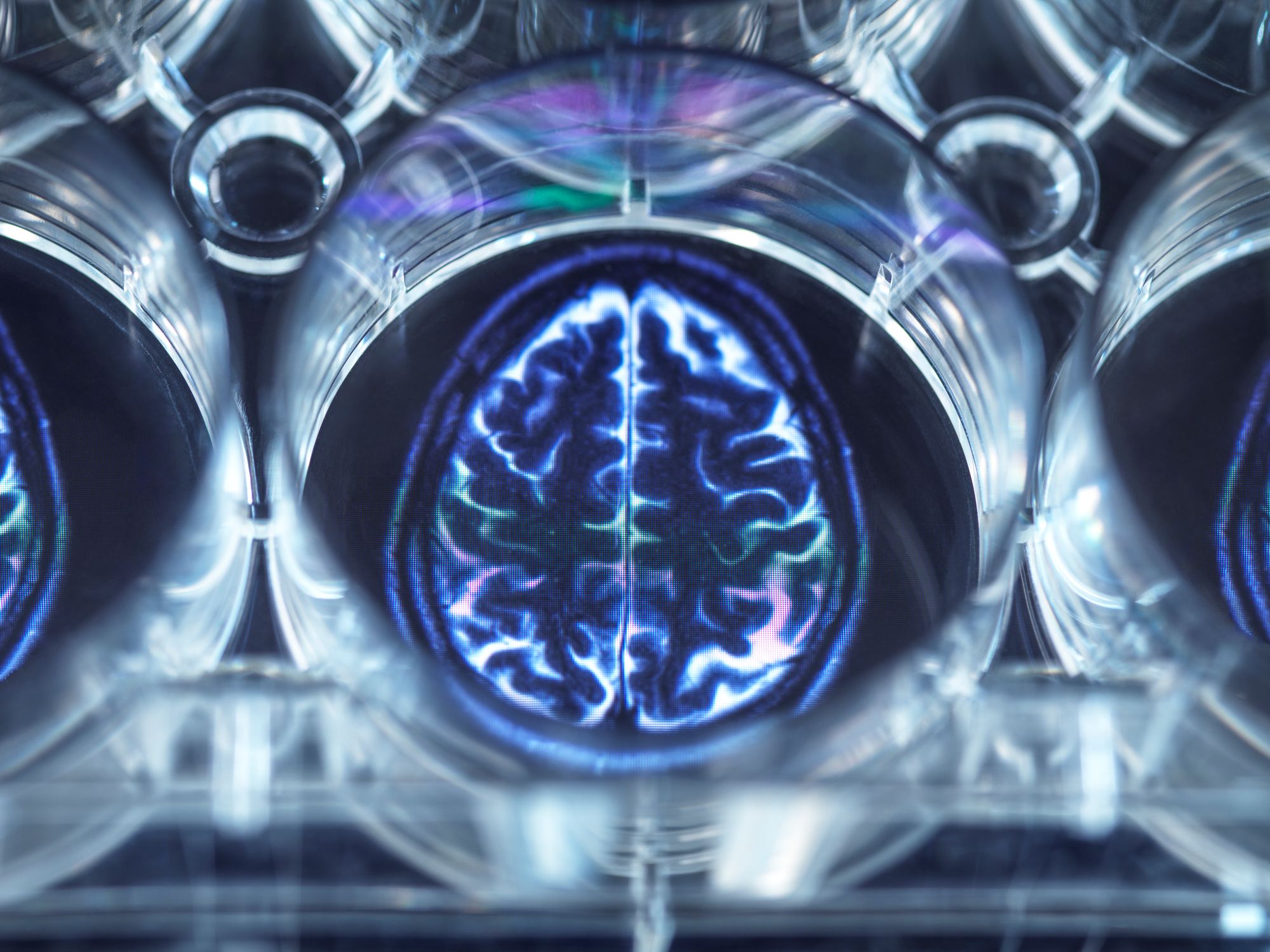
Book Notes:
“Happiness is absorption.”
“To be free is nothing; to become free is heavenly.”
-Johann Gottlieb Fichte
“The triviality of everyday life, with its problems and responsibilities, destroys our inner freedom. In fact, most people don’t even realize they possess this inner freedom...But as soon as we relax, we make the discovery of inner freedom.”
“If one is to believe in purgatory, where the soul is purified and chastened by pain, so, on the contrary, music is a pre-heaven, in which this purification is effected by melancholy bliss.”
“To say that, after all, his works did no harm would be an evasion. To kill hope is to do harm. The Unnameable and Endgame were conceived out of despair, and their aim is to make others share it.”
“This makes us aware of what happens when someone sinks into long-term passivity and discouragement. The vital batteries go flat and everything becomes meaningless and joyless. The moral is that before you try to see in the dark you must make sure that the torch batteries are charged.”
“The eternal womanly draws us upward and on.”
-Goethe
“As far as I am concerned, the implication of synchronicity would seem to be that when we are in spiritual health, so to speak, with a high level of vital purpose and making use of our freedom, synchronicities tend to favor us.
This also implies clearly that gloom and depression are dangerous states of mind, and explains why I react so strongly against pessimists like Beckett, whom I regard as a polluter of the wellsprings of our culture.”
“The recognition of freedom is another name for ‘power consciousness.’”
“Descartes should have followed up his assertion ‘ I think, therefore I am' with the question: ‘Yes, but who am I?’”
“The mind can deliberately change the way it sees things.”
“And it’s not only beauty and beautiful things. In a flicker of sunlight on a blank wall, or a reach of muddy pavement, or smoke from an engine at night, there’s a sudden significance and importance and inspiration that makes the breath stop with a gulp of certainty and happiness.
It’s not that the wall or the smoke seem important for anything or suddenly reveal any general statement, or are suddenly seen to be good or beautiful in themselves – only that for you they’re perfect and unique. It’s like being in love with a person…I suppose my occupation is being in love with the universe.”
-Rupert Brooke
“It gradually became clear that half an hour of focused attention is quite enough to renew the insight. I quickly discovered that, with practice, a feeling of control would rise up in me, and a certain cheerfulness would begin to glow, the feeling that Nietzsche describes when he says ‘What is happiness? The feeling that power is growing, that resistance is overcome.’”
“I do not now in the least desire to live longer unless I can go on with what I consider to be my proper business.”
-H.G. Wells
“Nietzsche, incidentally, was the only great Western thinker who recognized that the basic answer was conscious reinforcement of the will to health – that is, of ‘the secret life.’ Life-failure, then, is to a large extent a self-created malady.”
“Stating the thing broadly, the human individual thus lives usually far within his limits; he possesses powers of various sorts which he habitually fails to use. He energizes below his maximum, and he behaves below his optimum.
In elementary faculty, in coordination, in the power of inhibition and control, in every conceivable way, his life is contracted like the field of vision of a hysteric subject – but with less excuse, for the poor hysteric is diseased, while in the rest of us, it is only an inveterate habit – the habit of inferiority to our full self – that is bad.”
-William James
“You are looking for a rich husband. At your age, I looked for hardship, danger, horror, and death, that I might feel the life in me more intensely.”
-George Bernard Shaw
“If you wish to reinforce an insight so it can never fade, you must put twice as much energy into the learning process.”
“Consciousness can be pushed beyond its normal mechanical level.”
“In a very real sense, we entered a new phase of evolution around 1740, when large numbers of people learned to use the imagination.”
“You’re not unhappy, Syd, you just think you are.”
“We are all the time creating problems that do not exist.”
“When I feel low and tired, it is as if my ‘attention’ is scattered, like billiard balls all over a billiard table. As soon as I ‘pay attention,’ it is as if the billiard balls come together in the middle of the table.
And if I become deeply interested in something, it is as if they press together so tightly that they begin climbing on top of one another, forming a second row. Then, when I relax my attention, they separate and fall apart.
In these states of concentration and excitement, I catch a glimpse of another level.
I can see that if I could get into a sufficiently concentrated state, the billiard balls would climb on top of one another until they formed a pyramid. And this pyramid would never collapse. Because my sense of meaning would be so deep, my interest in everything so great, that I would have passed the point where ‘regress’ or collapse is possible. I would be sustained by sheer perception of meaning.
And for the human race, this would be the decisive step to becoming something closer to gods.”

Important Insights from Related Books:
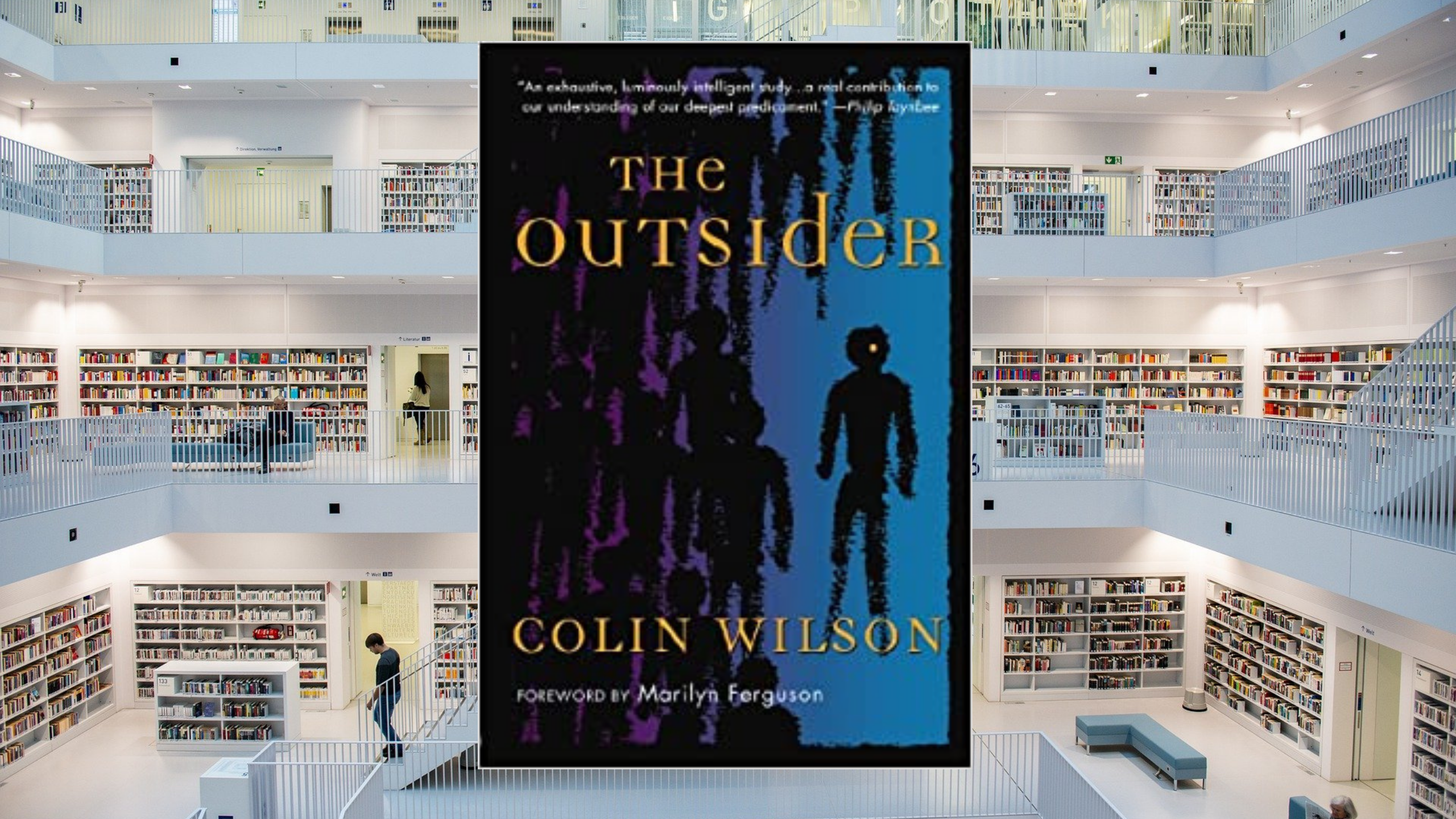
The Outsider, by Colin Wilson:
If ordinary life usually seems a bit...well, ordinary...it may be because the way most human beings live their lives can be compared to an extraordinarily powerful jet airplane flying on only one engine. That's Colin Wilson's basic contention in The Outsider, where he outlines his fundamentally optimistic philosophy of New Existentialism.
Wilson exploded onto the literary scene with this book, which came out in 1956 to massive acclaim. It's never been out of print since then, and it's been translated into more than thirty languages. What's more, is that he was only 24 years old when he wrote it! After publishing The Outsider, he went on to write more than 100 books, including six others which, along with The Outsider, comprise the "Outsider Cycle," a fuller representation of the ideas first proposed here.
I just happened upon this book one time – I had never heard of it before – and thought it looked interesting, given that he references philosophers and writers I enjoyed reading, such as Kierkegaard, Camus, Dostoyevsky, etc. I had no idea that it would completely change my life forever after and would radically alter how I lived out each day of my one and only life.
Sample Quotes from the Book:
“Normally man’s mind is composed only of a consciousness of his immediate needs, which is to say that this consciousness at any moment can be defined as his awareness of his own power to satisfy those needs. He thinks in terms of what he intends to do in half an hour's time, a day's time, a month's time, and no more.
He never asks himself: What are the limits of my powers? In a sense, he is like a man who has a fortune in the bank, who never asks himself, How much money have I got?, but only, Have I enough for a pound of cheese, for a new tie? etc."
“Man’s moments of freedom tend to come under crisis or challenge, and when things are going well, he tends to allow his grip on life to slacken.”
“Let us summarize our conclusions briefly: The Outsider wants to cease to be an Outsider. He wants to be 'balanced.' He would like to achieve a vividness of sense-perception (Lawrence, Van Gogh, Hemingway). He would also like to understand the human soul and its workings (Barbusse and Mitya Karamazov). He would like to escape triviality forever, and be 'possessed' by a Will to Power, to more life.
Above all, he would like to know how to express himself, because that is the means by which he can get to know himself and his unknown possibilities. Every Outsider tragedy we have studied so far has been a tragedy of self-expression."
Read the Full Breakdown: The Outsider, by Colin Wilson
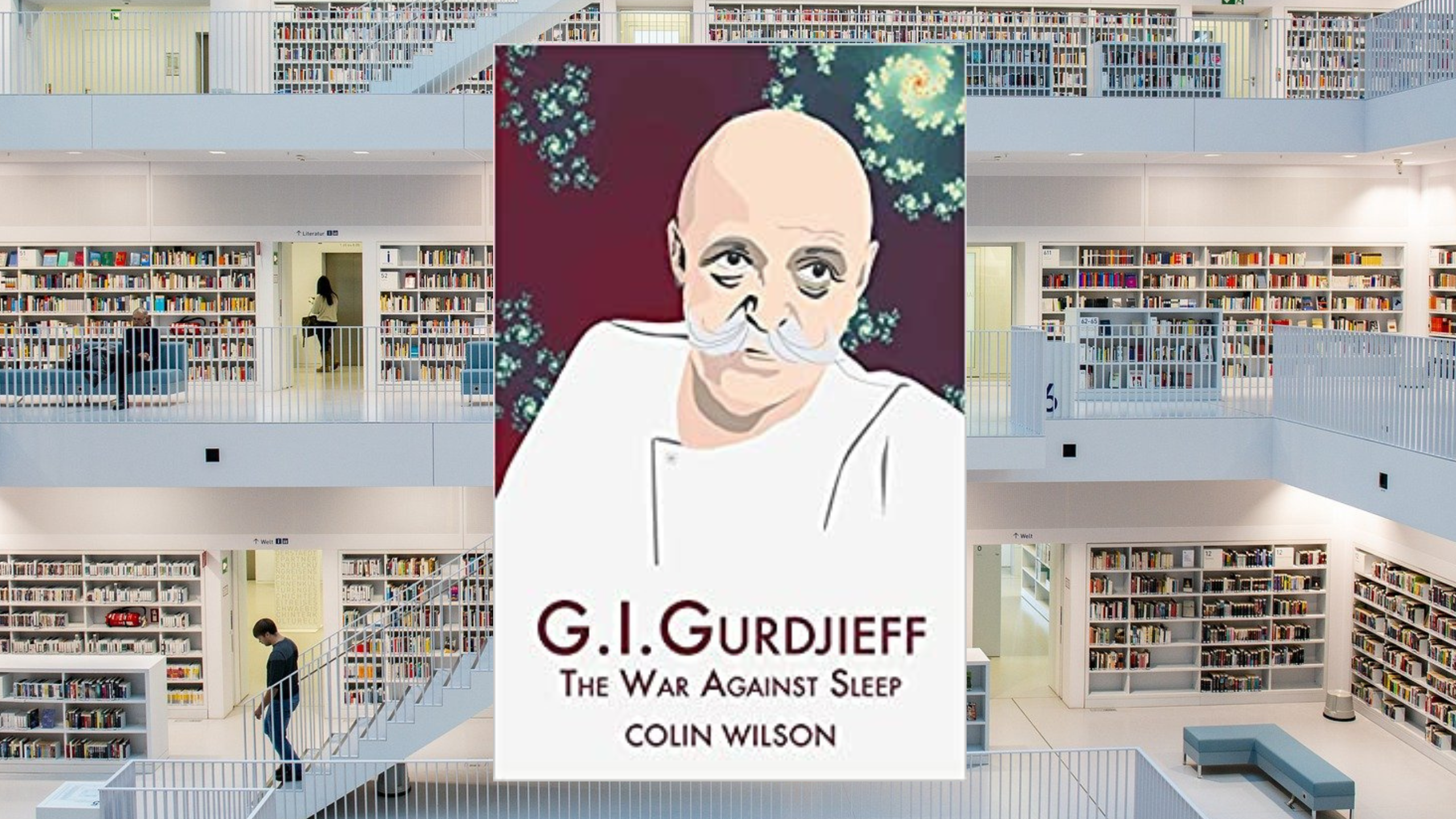
G.I. Gurdjieff: The War Against Sleep, by Colin Wilson:
George Ivanovich Gurdjieff was one of the most charismatic, enigmatic, powerfully self-possessed mystical teachers of the 20th century, and this book is a short introduction to his life and work. Gurdjieff taught that most humans exist in a state of "waking sleep," where they remain unaware of their infinite potential and ultimate value as human beings.
Colin Wilson, the author of this short introduction, believed that most human beings are like great big and powerful jet airplanes attempting to fly on just one engine. That is, we possess vast lakes of "vital reserves," or extra energies that we habitually fail to call upon.
So if you feel as though there is something missing in your life, that the world is more gray and bleak than it could be or should be, then you're beginning to wake up. "Man is in prison," but to know this consciously - as a felt reality - takes active, sustained effort over a longer period of time.
So this whole book is about getting that process started. It's about the effort to attain self-knowledge, and the super-effort that full aliveness may require. It's about abandoning destructive habits and automaticity, and about keeping the mind awake. It's about firing up all the engines.
Sample Quotes from the Book:
“At the core of his work lies this notion that we possess greater powers than we realize, and that our apparent limitations are due to a peculiar form of laziness – a laziness that has become so habitual that it has developed into a mechanism.”
“To actually know this consciously, to realize that we were not intended to reach breaking point so quickly and easily, would obviously alter a man’s whole approach to his life and its problems. To effect such an alteration in human consciousness was Gurdjieff’s central aim.”
"How is this to be done? According to Gurdjieff, the answer falls into two parts. First of all, a man must commit himself wholly and totally to the task of escaping his normal limitations; it requires the kind of commitment that made saints sit on top of pillars. Secondly, he must understand something of the workings of this complicated computer that houses the human spirit.”
Read the Full Breakdown: G.I. Gurdjieff: The War Against Sleep, by Colin Wilson

Awareness, by Anthony de Mello:
What does it feel like to imagine oneself as intimately connected with Reality - with everything that exists - and to live with your eyes, and your heart, wide open?
Anthony de Mello points the way to an understanding - and awareness - of what such a fully realized life feels like, and just like life, this book is full of surprises. Awareness began as a series of lectures that were later combined into a book, so it helps to imagine him speaking to an audience while you read it, and that you are in that audience.
De Mello was a Jesuit priest and spiritual teacher and he uses stories, parables, jokes, and striking insights - which he combines with his deep humanity and infinite care and affection - to wake people up to the life that's been sitting right in front of them the whole time they've been alive.
De Mello taught that you don't have to "add" anything to your life to make it - or yourself, for that matter - into everything it could be; rather, it's a process of subtraction, of dropping your attachments, your labels, your concepts, and all the other obstructions to your happiness, which is, after all, your natural state.
Sample Quotes from the Book:
“Some people see awareness as a high point, a plateau, beyond experiencing every moment as it is. That’s making a goal out of awareness. But with true awareness there’s nowhere to go, nothing to achieve.
How do we get to this awareness? Through awareness. When people say they really want to experience every moment, they’re really talking about awareness, except for that ‘wanting.’ You don’t want to experience awareness; you do or you don’t."
“But I’ll promise you this: I have not known a single person who gave time to being aware who didn’t see a difference in a matter of weeks. The quality of their life changes, so they don’t have to take it on faith anymore. They see it; they’re different. They react differently. In fact, they react less and act more. You see things you’ve never seen before."
“Understand the obstructions you are putting in the way of love, freedom, and happiness and they will drop. Turn on the light of awareness and the darkness will disappear."
Read the Full Breakdown: Awareness, by Anthony de Mello

Zorba the Greek, by Nikos Kazantzakis:
“Great visionaries and poets see everything in the same way – for the first time. They see a new world before them each morning. No, they do not see this new world; they create it.”
-Nikos Kazantzakis, Zorba the Greek
Anthony Quinn, the actor who played Zorba in the 1964 movie adaptation of this wonderfully life-affirming book, once had a knife pulled on him in New York City's Central Park. The attacker had come up to Quinn from behind and, with the knife pointed against his back, ordered him to turn around.
Quinn had just been nominated for an Oscar for portraying Kazantzakis's ecstatic, life-loving creation who laughed at death, and inspired hundreds of thousands of readers with his philosophy of “living immediately and intensely.” But in the dark of night, the knife-wielding attacker couldn't possibly have known who he was about to stab.
What happened — and this is true! — is that when he turned around, the moon lit up Quinn’s face, and there was a flash — not of steel, but of recognition. That’s…that’s the guy from the movie! That’s Zorba the Greek — the Yea-sayer, the Life-affirmer, the Death-renouncing Zorba the Greek!
History doesn’t record whether the mugger held onto his knife, but he immediately pulled it away from Quinn’s back and exclaimed, “Mr. Zorba! I’m so sorry!” And ran off into the night.
To anyone who has had their life changed by this book - and there are many, myself included - the attacker's reaction seems completely appropriate. Zorba the Greek is one of the most powerful, life-affirming books you’re ever likely to come across, and I don’t think that anyone who is somewhat alive and breathing can read this book and sit still.
Sample Quotes from the Book:
“‘There are mountains,’ I continued, ‘huge, God-inhabited mountains filled with monasteries occupied by monks in yellow robes who sit cross-legged for one month, two months, six months thinking of only one thing. One thing, do you hear, one, not two! They don’t think of women and lignite or of books and lignite, as we do, but concentrate their minds, Zorba, on a single thing only, and perform miracles. That’s how miracles happen.
You’ve seen, haven’t you, Zorba, what happens when you place a magnifying glass in sunshine and gather its rays into just a single spot? The spot soon bursts into flames. Why? Because the sun’s power is not dispersed but is entirely concentrated on that spot. The same happens with the human mind. You produce miracles if you cast your mind on one and only one thing.’”
“Right now I’m thinking of our meal: chicken, plus pilaf topped with cinnamon. My whole mind is steaming just like the pilaf. Let’s eat first, stuff our faces; then we’ll see. One thing at a time in proper order. Right now we’ve got pilaf in front of us; let our minds be pilaf. Tomorrow we’ll have lignite in front of us, so let our minds, then, be lignite. No half measures, understand?”
“We sense happiness with difficulty while experiencing it. Only when it has passed and we look back do we suddenly comprehend, sometimes with astonishment, how happy we have been. I, however, on this Cretan shore, was experiencing happiness while being simultaneously aware of my happiness.”
Read the Full Breakdown: Zorba the Greek, by Nikos Kazantzakis
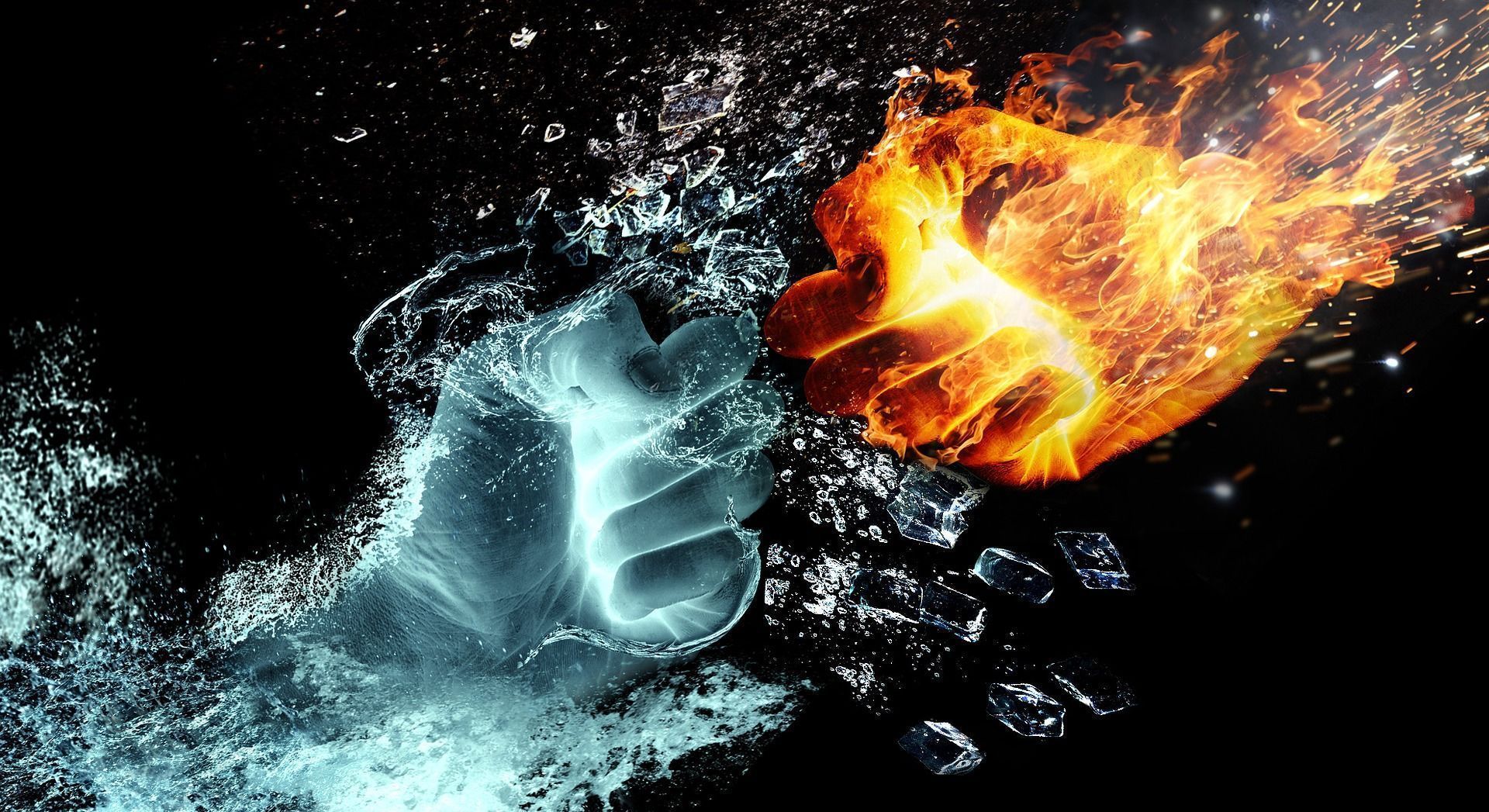
The View from the Opposition:
No one's ideas are beyond questioning. In this section, I argue the case for the opposition and raise some points you might wish to evaluate for yourself while reading this book.
#1: Yes, But There Are Limits
People do possess a tremendous capacity for changing themselves and rising above their circumstances, but this capacity is not infinite.
It's easy enough to say, "You're not unhappy, you just think you are!" but this is going to come as a big, condescending slap in the face to anyone undergoing very serious challenges in their lives.
I think that Colin Wilson would agree with what I've just written, but it's important enough that I lay it all out here.
We're not talking about magical thinking, pretending your problems don't exist, or blind faith in some mystical force that you can tap into in order to gain superpowers or something.
We're just reaffirming the transformational power of human agency, and I, personally, am putting forth the idea that we don't know where our limits are. We don't know how alive we can be, how much energy and drive we can summon each day, and what we can ultimately accomplish in our lives.
So, the conclusion that I've tentatively adopted is that we need to act as if we're nowhere near our maximum potential for true aliveness and personal power.
And if we're really serious about maximizing our own human potential, we'll want to assist others to do the same, so that they can experience the same beauty and wonder that we do, and not blame them for problems that were never their fault in the first place.
"The test of a first-rate intelligence is the ability to hold two opposed ideas in the mind at the same time and still retain the ability to function.”
-F. Scott Fitzgerald
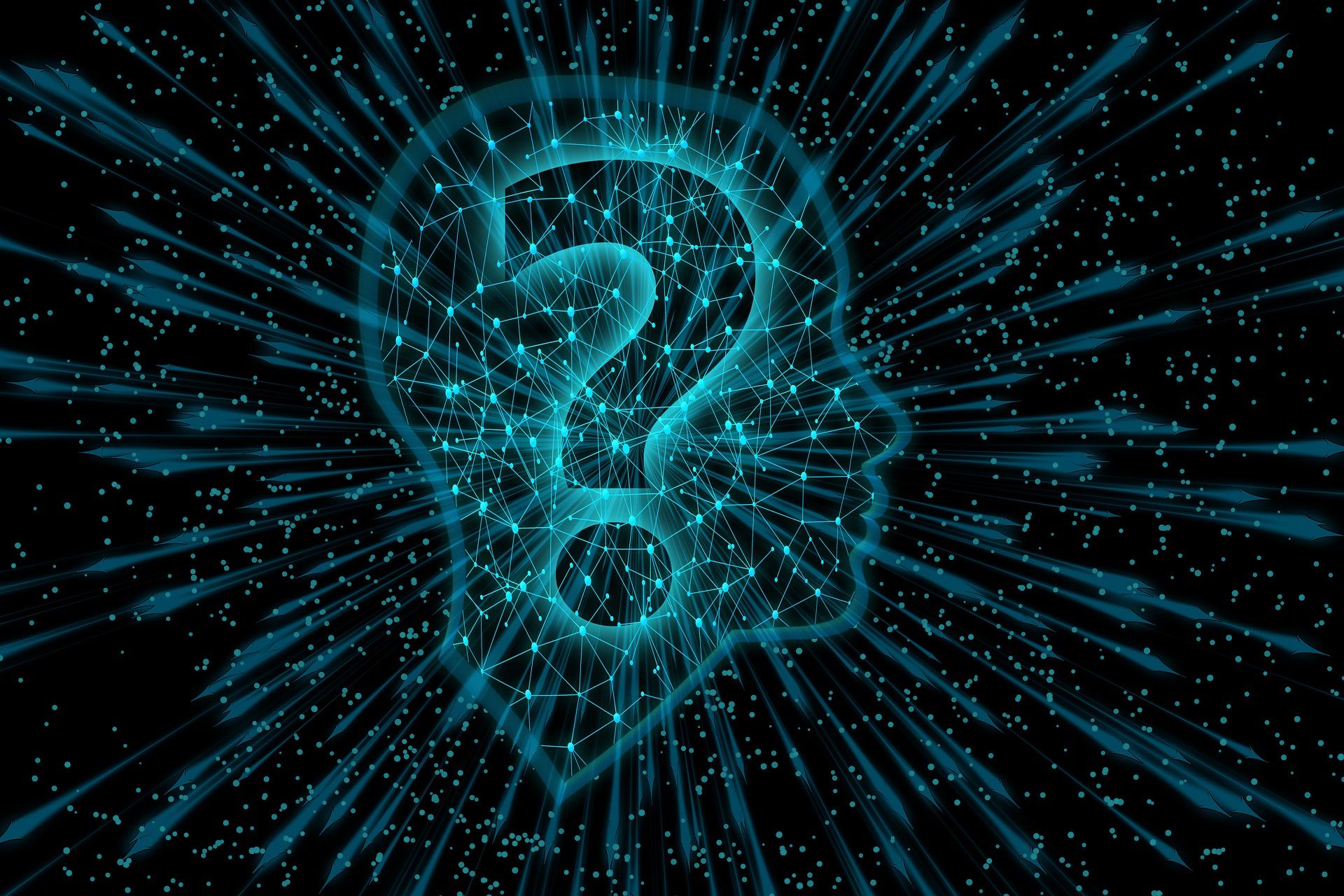
Questions to Stimulate Your Thinking:
The quality of your questions determines the quality of your life. That's also how you get the absolute most out of any book that you decide to read:
You ask great questions the whole time - as though the book was on trial for its life.
Here in this section are a few questions that can help guide and stimulate your thinking, but try to come up with your own additional questions, especially if you decide to read this book the whole way through...
#1: "Have you ever had one of these peak experiences that Colin Wilson talks about, where you suddenly experience a deeper vision of your regular, everyday reality?
#2: "Whom do you know personally - or have you heard of - that has consistently pushed past their perceived mental barriers and broken through to new levels of mental freedom? How did they do it?"
#3: "Do you feel more pessimistic or optimistic about most people's ability to direct their own thoughts and influence their own reality?"
#4: "Have you ever experienced this crisis vision that Colin Wilson talks about, where a large, sudden, or urgent problem thrust you into a more vivid state of awareness?"
#5: "When was the last time you really pushed yourself mentally to reach a new level of focus and/or achievement? What was the result and how did it make you feel? Could you do it again? Would you want to?"
#6: "What do you think is currently just beyond your mental abilities? Could those abilities be stretched enough to eventually overcome that limitation?"
#7: "What can you do to turn the tide in your own mind, so that you're habitually thinking more positive, life-affirming thoughts than negative ones?"
#8: "If you are able to become more free inside your own head and expand the limits of your freedom, what do you intend to use this newfound freedom for?"
#9: "How much of your current self are you willing to give up in order to become the person you're capable of being?"
#10: "What would complete and total mental freedom look and feel like? Is that a desirable state? Or can limits sometimes serve a useful purpose? Why?
"Judge a man by his questions, rather than by his answers."
-Voltaire

Action Steps:
So you've finished reading. What do you do now?
Reading for pleasure is great, and I wholeheartedly support it. However, I am intensely practical when I'm reading for a particular purpose. I want a result. I want to take what I've learned and apply it to my one and only life to make it better!
Because that's really what the Great Books all say. They all say: "You must change your life!" So here, below, are some suggestions for how you can apply the wisdom found in this breakdown to improve your actual life.
Please commit to taking massive action on this immediately! Acting on what you've learned here today will also help you solidify it in your long-term memory. So there's a double benefit! Let's begin...
#1: Pick One Habit to Make Conscious
To escape from prison, you first have to realize that you are in prison, and it's the same idea with respect to our habits. Literally by definition, they are habitual, unthinking actions that we take each day as we move through life.
It's time to make them more conscious.
So pick just one thing that you do each day (or week) and become aware of what you're doing as you're doing it!
Feel what it's like to make your coffee in the morning, hold your toothbrush in your hands, or reverse out of the driveway on your way to work. Tune in to the sensations you experience as you're putting one foot in front of the other, shaking someone's hand, or locking the door when you leave the house at night.
It may not seem like much, but it's one important step at a time toward switching off autopilot and becoming more engaged in your real life.
#2: Take on a Bigger Challenge Than You Think You Can Do
You could also intentionally put yourself in a difficult situation that you must get out of, unless you want to face embarrassment, ridicule, or some form of failure.
Don't make this too intense right out of the gate, but it's all about making your mind uncomfortable and stretching yourself in order to find out where your limits actually are, and what you might have to do to push past them.
If you can comfortably read one book a month, announce to your friends that you're going to start reading one per week. If you plan on entering a half-marathon this summer, enter a full one. Go one size bigger until you start to doubt yourself, and then commit to going all-in anyway.
#3: Progressively Overload Your Mental Muscles
In the gym, how you get bigger muscles is by gradually adding more weight, sets, or reps over time, so that they have to adapt to the stress that you're placing on them and grow bigger. Well, it's exactly the same thing with your mind!
In order to experience mental states you've never experienced before, you have to do things you've never done before. I'm not advocating doing anything dangerous here, it's just that you are capable of far more than you know, and it's only by testing your limits and seeking to move beyond them that you can make progress.
As always, we tend to overestimate what we can do in a day, and underestimate what we can do in a year, or ten years, so stick with this for at least 60-90 days in order to simulate for yourself a proper mental training camp.
"The path to success is to take massive, determined action."
-Tony Robbins

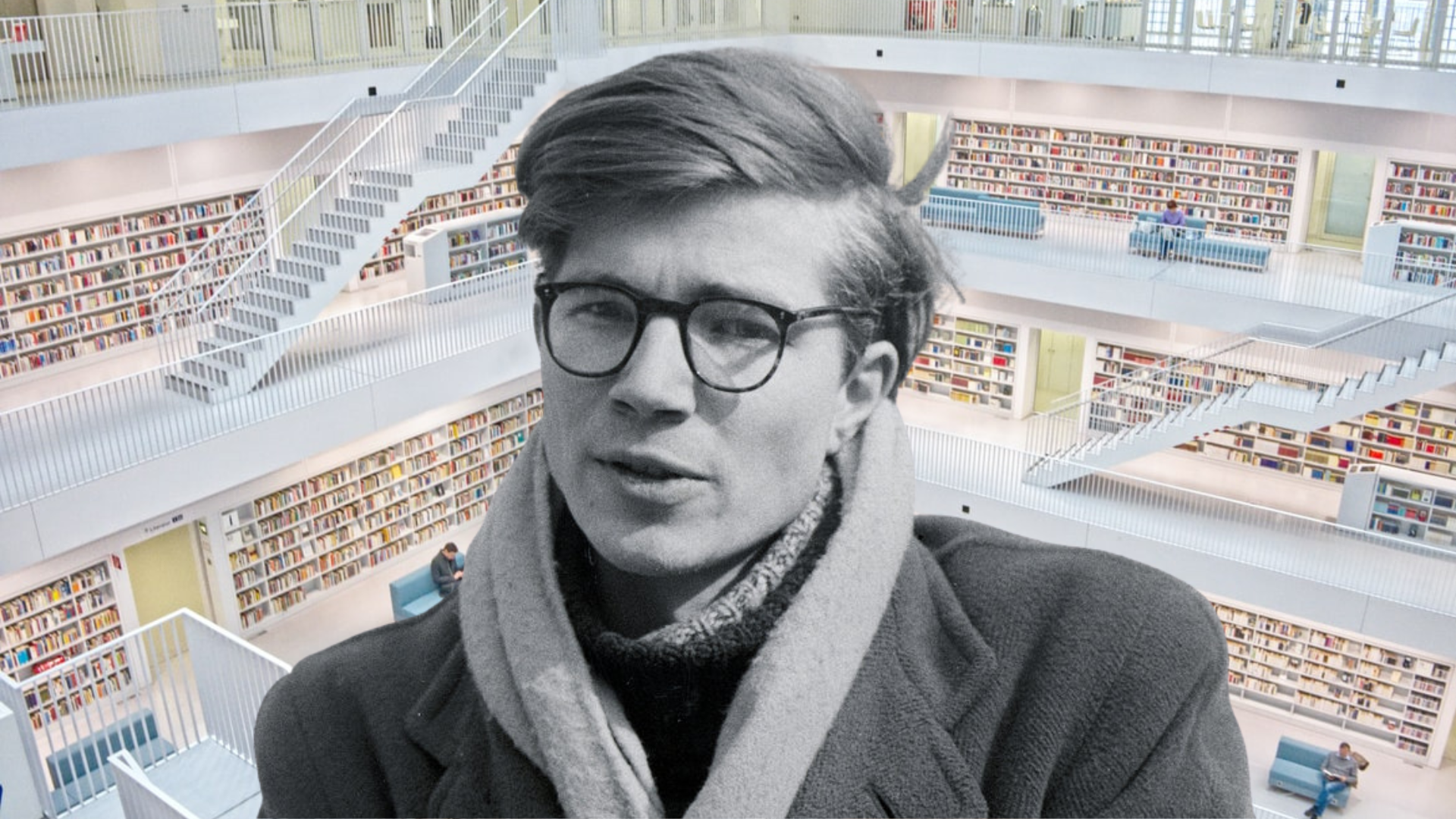
About the Author:
Colin Henry Wilson (26 June 1931 – 5 December 2013) was an English writer, philosopher, and novelist who eventually wrote more than a hundred books.
Wilson called his philosophy "new existentialism" or "phenomenological existentialism," and maintained that his life's work was to create a new and optimistic existentialism.
One of his first books, The Outsider, sold more than 20,000 copies in its first two months, launching him to literary stardom when he was just 24 years old.
Additional Resources:
Colin Wilson Interview with Brad Spurgeon
Introduction to the New Existentialism
This Book on Amazon:
Super Consciousness, by Colin Wilson
If You Liked This Book:
Religion and the Rebel, by Colin Wilson
Introduction to the New Existentialism, by Colin Wilson
G.I. Gurdjieff: The War Against Sleep, by Colin Wilson
Zorba the Greek, by Nikos Kazantzakis
Yes to Life: In Spite of Everything, by Viktor Frankl
Discover the Immeasurable, by Jiddu Krishnamurti
Transcend, by Scott Barry Kaufman
Awareness, by Anthony de Mello

